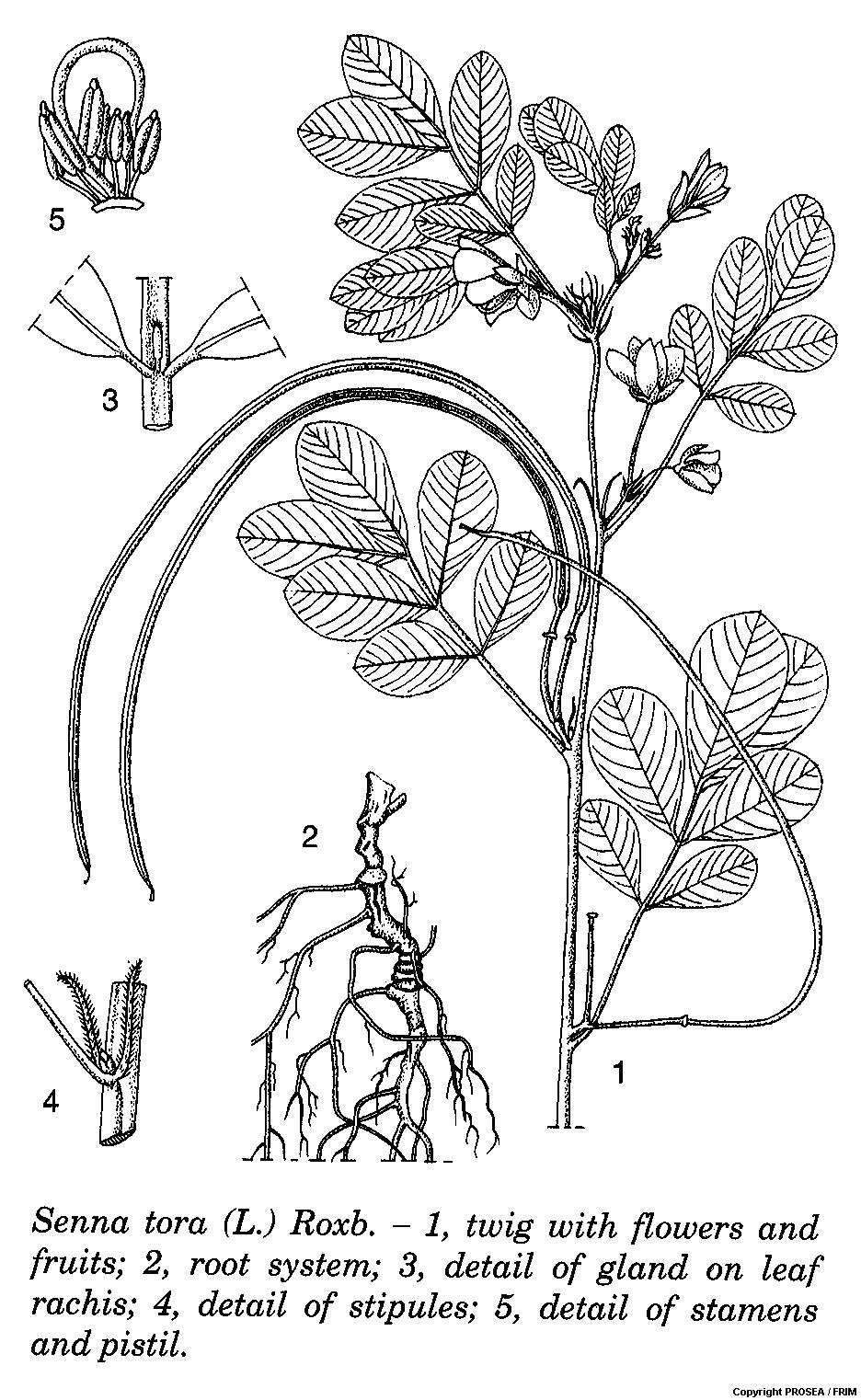Senna tora (L.) Roxb.
Family
Leguminosae
Synonyms
Cassia tora L., Cassia borneensis Miq.
Vernacular Names
|
Malaysia |
Gelenggang kechil, gelenggang padang. |
|
English |
Foetid cassia, panicled milkwort. |
|
Indonesia |
Gelenggang kecil, ketepeng kecil (Malay), kate-pengleutik (Sundanese). |
|
Philippines |
Katanda, balatong-aso (Tagalog). |
|
Cambodia |
D[aa]ng’hët khmaoch ni. |
|
Laos |
Nha leung meum, nha lap mun. |
|
Thailand |
Chum bet tai, chum bet lek (Central), lapmuen noi (Northern). |
|
Vietnam |
Th [ar]o quy[ees]t minh, mu[oof]ng h[oo]i, mu[oof]ng ng[ur]. |
|
French |
Casse reticle. |
Geographical Distributions
The origin of Senna tora is unknown, but nowadays it is only found in the Old World tropics.
Description
Senna tora is a foetid smelling herb or undershrub, up to 1 m tall, almost smooth and with a stout taproot.
The leaves are with 3 pairs of leaflets, petiole 1-4 cm long, rachis 2-3 cm long, and with an awl-shaped gland which is 2 mm long between the two lowest pairs of leaflets. The leaflets are obovate and measuring 2-5 cm x 1.5-2.5 cm. The upper leaflets are largest, thin, with wedge-shaped base to rounded and rounded apex.
The inflorescence is a short axillary raceme and 1-2(-3)-flowered. The flowers are with ovate sepals and measuring 5 mm x 2-4 mm while the petals are obovate, unequal, measuring up to 10 mm x 6 mm and yellow. The 7 stamens are almost equal. The filaments are 1.5-2 mm long with 3 large anthers. The 4 smaller ones are 1.5-2.5 mm long, with absent staminodes, densely hairy ovary with hairless style and truncate stigma.
The fruit is linear, cylindrical and measuring 10-15 cm x 0.5 cm. There are 20-30 seeds per pod which are rhomboidal, measuring 5 mm x 3 mm, glossy and with an areole (1.5-2 mm wide) that covers part of the seed surface.
Ecology / Cultivation
Senna tora is common throughout Southeast Asia in anthropogenic habitats at lower altitudes. It is reported to be an important weed in pastures and cropped fields in Southeast Asia, partly because of its high seed production.
Line Drawing / Photograph
References
1. Plant Resources of South-East Asia No.12(1): Medicinal and poisonous plants 1.



